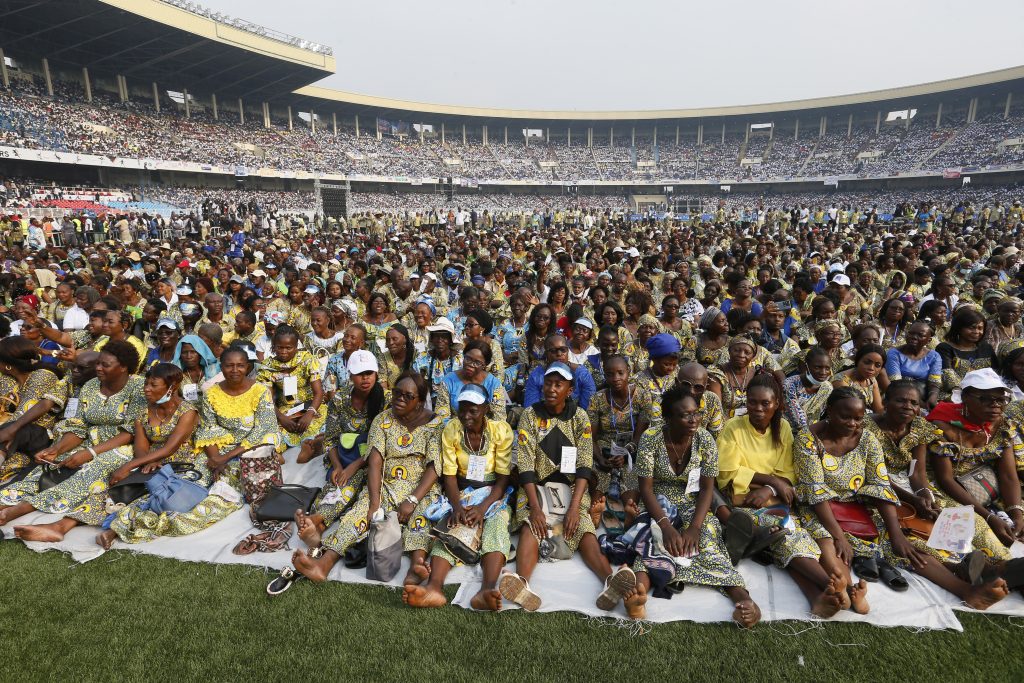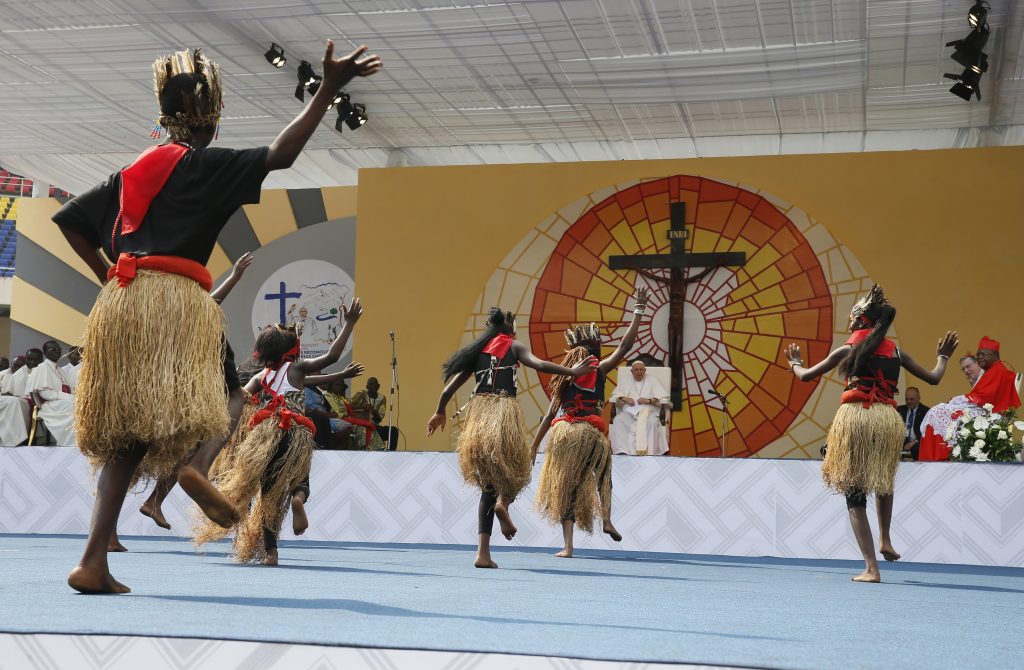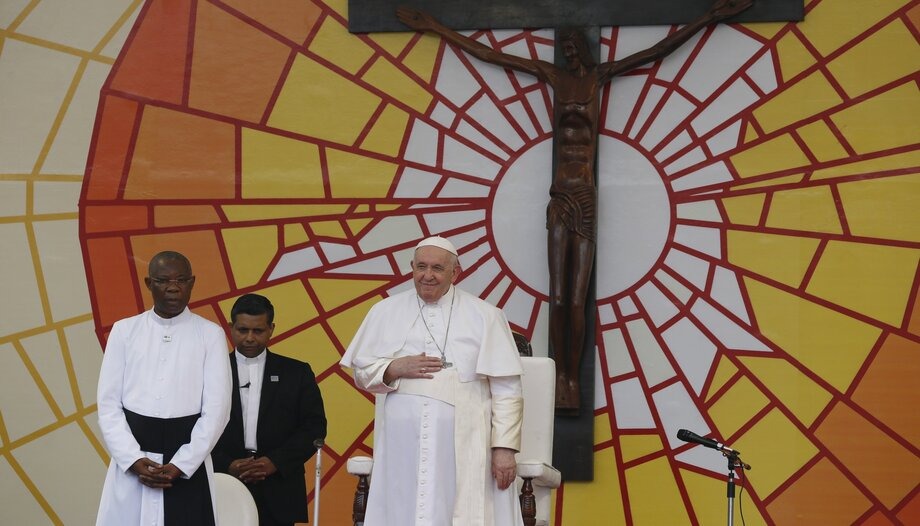Pope Francis met with catechists and young people at the Martyrs' Stadium in Kinshasa. He asked those who attended the meeting not to look at him, but to look at their own hands, for "God has placed in your hands the gift of life, the future of society and of this great country."
Continuing with this image, he said: "All hands are similar, but none is equal to the other; no one has hands equal to yours, that is why you are a unique, unrepeatable and incomparable treasure. No one in history can replace you. Ask yourself then, what are my hands for, to build or to destroy, to give or to hoard, to love or to hate?" And therein lies the fundamental decision.

Trying to reach the heart of each person, Francis addressed the young people as follows: "Young people who dream of a different future, from your hands tomorrow is born, from your hands can come the peace that is missing in this country. But, concretely, what is to be done? I would like to suggest some ingredients for the future, five, which you can associate with the fingers of your hand".
Five fingers, five ingredients
"To the thumb, the finger closest to the heart, corresponds. the prayerthat makes life beat. It may seem an abstract reality, far from tangible problems. However, prayer is the first ingredient, the most essential, because we alone are not capable". The Pope said that we need the water of prayer to give life.
"Prayer is necessary, a living prayer. Do not address Jesus as a distant and distant being to be feared, but as the best of friends, who gave his life for you." Addressing everyone, he asked, "Do you believe this, do you want to choose prayer as your secret; as the water of the soul; as the only weapon you will carry with you; as a companion on your journey every day?"
Regarding the index finger, the Pope said: "With this one we indicate something to others. The others, the communityThis is the second ingredient. Friends, do not let your youth be spoiled by loneliness and isolation. Think always together and you will be happy, because community is the way to be well with oneself, to be faithful to one's calling".

But this finger-pointing also entails a danger. For this reason Francis warned: "Beware of the temptation to point the finger at someone, to exclude someone else because he or she has a different origin from you, of regionalism, of tribalism, which seem to strengthen you in your group and, instead, represent the negation of the community".
Then "we come to the middle finger, which rises above the others almost to remind us of something essential. It is the fundamental ingredient for a future that lives up to your expectations. It is honesty. To be a Christian is to witness to Christ. Therefore, the first way to do this is to live righteously, as He wishes. This means not allowing ourselves to be entangled in the snares of corruption. The Christian can only be honest, otherwise he betrays his identity.
And after the middle finger, comes the "fourth finger, the ring finger. This is where the wedding rings are placed. But, if you think about it, the ring finger is also the weakest finger, the one that is the hardest to lift. It reminds us that the great goals of life, love in the first place, pass through fragility, effort and difficulties. These must be lived, faced with patience and confidence, without being overwhelmed by useless problems".
Along with this fragility comes a supernatural consequence. "In our fragility, in crises, what is the strength that allows us to go on? The sorry. Because to forgive means to know how to start again. To forgive does not mean to forget the past, but to not resign oneself to its repetition. It means changing the course of history. It is to lift up those who have fallen. It is to accept the idea that no one is perfect and that not only I, but everyone has the right to start over".
The list of ingredients begins to run out, "prayer, community, honesty, forgiveness. We have come to the last finger, the smallest. You might say, I am small and the good I can do is a drop in the bucket. But it is precisely littleness, making oneself small, that attracts God. The key word in this sense is service. He who serves becomes small. Like a tiny seed, it seems to disappear into the earth, yet it bears fruit. As Jesus tells us, service is the power that transforms the world. So, the little question you can tie to your finger every day is: what can i do for others? That is, how can I serve the Church, my community, my country?"
The Pope ended his speech with some words of encouragement: "I would like to tell you one last thing: never be discouraged. Jesus believes in you and will not leave you alone. The joy you have today, take care of it and do not let it fade away". In communion with one another, "come out together from the pessimism that paralyzes. The Democratic Republic of Congo is waiting for a different future from your hands, because the future is in your hands. May your country once again become, thanks to you, a fraternal garden, the heart of peace and freedom in Africa. Thank you.








